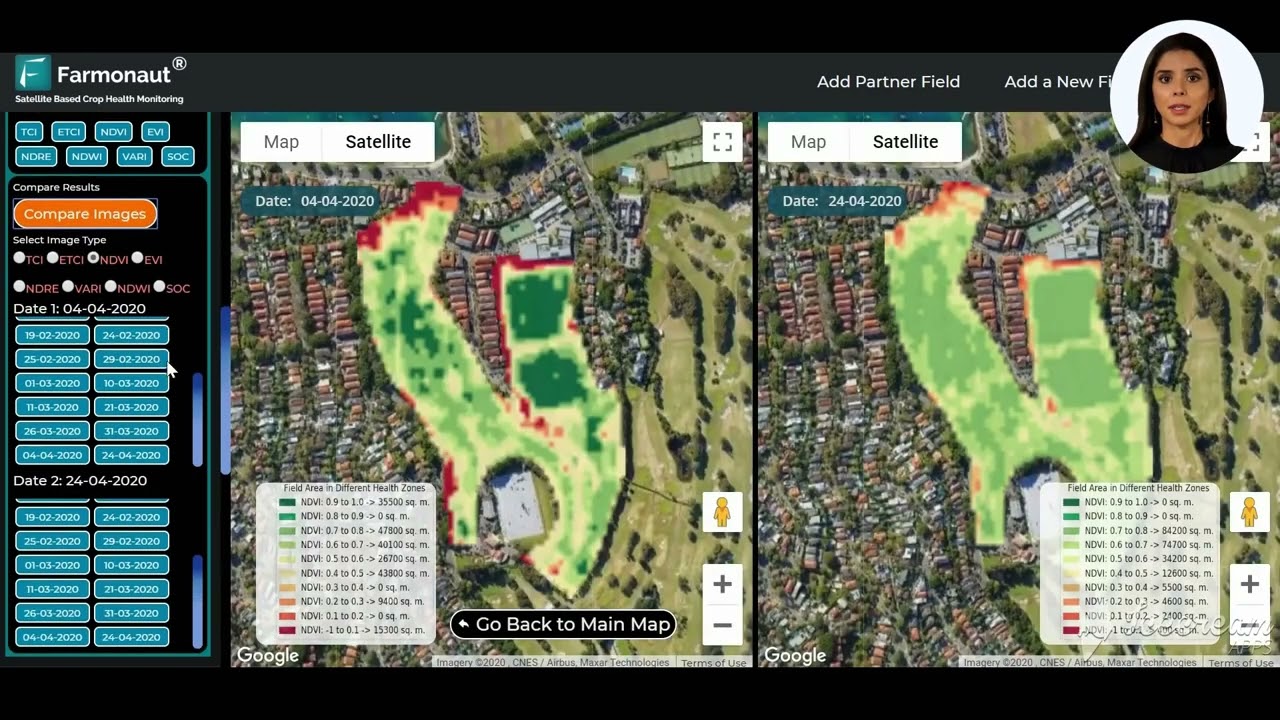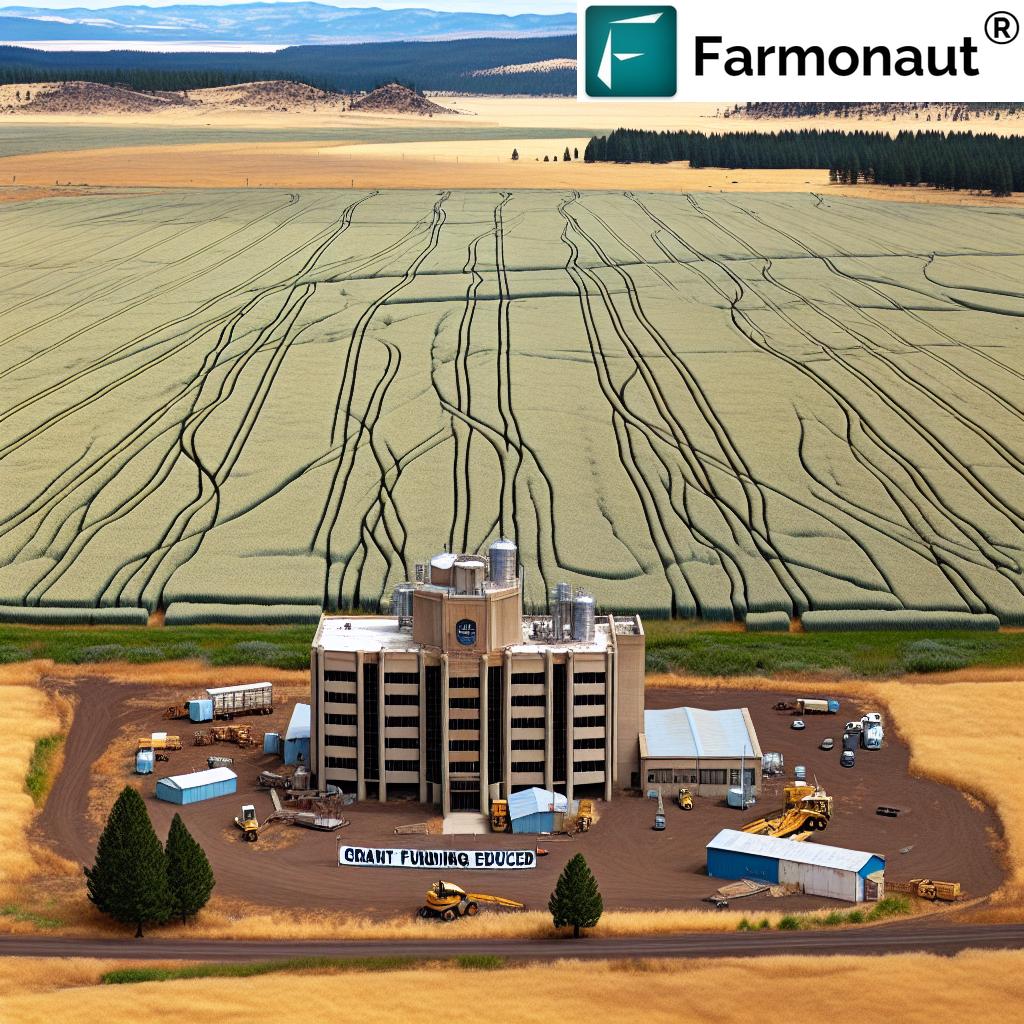7 Ways Farm Grants Boost Ashfield with Massachusetts Local Funding
“Over 60% of Ashfield’s small farms accessed Massachusetts grants to repair equipment and expand local product offerings.”
Introduction: The Power of Farm Grants in Ashfield
Farm grants Massachusetts are breathing new life into Ashfield and the wider western counties of the commonwealth. In what was once a crumbling barn on Creamery Road, a vibrant new country store now stands, built with community in mind and a clear commitment to local products. This transformation is not just about infrastructure; it represents the resilience and innovative spirit of small farms and local businesses—sustained, in large part, by critical local funding and state grant programs.
Ashfield, a charming farm town nestled in Franklin County, is a living example of how grants empower local farms to grow, repair vital equipment, and boost the availability of homegrown products. From attracting tourism to supporting an array of unique shops, these initiatives help building sustainable communities across western Massachusetts. In this comprehensive guide, we explore the seven most important ways that farm grants Massachusetts are making a lasting difference in our region—and how technology, like that from Farmonaut, supports these efforts every step of the way.
Whether you are a resident, farmer, business owner, or a community advocate, understanding the impact of these programs helps us collectively support our vibrant, resilient towns and sustainable agriculture for generations to come.
Building Sustainable Farming Communities in Western Massachusetts
Ashfield and its neighboring western counties—Franklin, Hampshire, Berkshire, and Hampden—are defined by rolling hills, open fields, and close-knit communities. Farms are not just economic engines; they are anchors of our local culture and stewards of the land. Yet, like many agricultural regions, we face unique challenges: aging infrastructure, the need for modern equipment repairs, fluctuating markets for local products, and the ongoing task of building resilience against climate and economic uncertainty.
This is where farm grants Massachusetts stand apart. Recent state and federal programs—like Massachusetts Biz-M-Power and USDA initiatives—are designed to fuel sustainable growth, repair historic barns and other structures, and provide fresh funding for innovative projects. The impact ripples far beyond the farm gate, building a network of support that boosts our shops, orchards, and essential town services.
“Massachusetts farm grants have helped increase sustainable farming practices in western counties by nearly 40% since 2018.”
1. Equipment Repair Funding for Farms: Keeping Ashfield Growing
Farming success relies on the timely operation of tractors, harvesters, irrigation systems, and other specialized equipment. In Ashfield and Franklin County at large, breakdowns can threaten a successful harvest—especially when the window for picking crops like apples is just a few short weeks. This is why equipment repair funding for farms is one of the most powerful ways local grants fuel our growth.
- Critical Downtime Avoidance: When equipment breaks down, state and local grants enable us to repair machinery faster, directly on the farm—saving crucial harvest days and dollars.
- Accessibility Improvements: Grants make it possible to design repair shops and workspaces that accommodate all farmers, including those with disabilities, supporting inclusion and opportunity.
- Community Impact: In a county where repair shops are scarce and schedules are packed, investing in on-farm repair space ensures reliable production, supports local jobs, and strengthens family operations.
Local farms—often multi-generational and family-run—are also more likely to maintain and extend the lifecycle of machines, reducing the environmental burden of frequent replacements.
Explore Farmonaut’s Fleet & Resource Management Tools — For farms looking to further optimize fleet use, improve machinery efficiency, and track field operations, these tools combine satellite-driven insights with real-world logistics management to reduce costs and support smarter, sustainable equipment use.
2. Farm Building Improvements: From Old Barns to New Opportunities
Barns are the iconic heart of every small farm and rural town. In Ashfield, recent grants have helped us move from crumbling wooden structures to sturdy new buildings with modern concrete footings and space for today’s needs. Local programs, such as country store construction grants and other state investment projects, are essential not just for protecting our history, but for paving the way for the next generation of farming families.
- Restoration and Repurposing: Modernizing barns preserves a piece of our history and allows us to reimagine these buildings for retail, processing, and education facilities—injecting new energy into our communities.
- Safety and Sustainability: Solid footings and new construction improve safety, reduce energy use, and support eco-friendly practices.
- Boosting Local Economy: Every barn or farm structure project creates construction jobs, supports local suppliers, and keeps investments circulating within the neighborhood.
Our store on Creamery Road, now a local product hub and gathering place, stands as a symbol of what can be achieved when farm grants Massachusetts target both infrastructure and community needs.
Read how Farmonaut’s Large Scale Farm Management Platform helps rural operations coordinate multiple fields, building projects, and assets for efficient growth anywhere in Massachusetts.
3. Boosting Local Product Shops & Community Stores
Ashfield’s country stores and apothecaries do more than sell goods; they connect our residents to local products and bring visitors to our towns. State and small business grants western Massachusetts are pivotal in helping these outlets expand, modernize, and offer a wider selection, all while supporting neighboring producers.
- Diversification: Local grants help us stock eggs, honey, maple syrup, pickles, soaps, and artisan wares—showcasing the best of Franklin County and beyond.
- Shop and Tourism Appeal: A welcoming, unique shop on Creamery Road becomes a must-visit destination, increasing tourism and local spending.
- Multi-Business Support: When grants help one shop to thrive, partners and suppliers across the region benefit, multiplying the positive effects.
Grant programs specifically encourage shops to buy, sell, and promote other locally-grown or crafted products, directly increasing the range and reach of community businesses. This not only keeps dollars within the town but also helps build stronger relationships among farmers, crafters, and residents.
Learn about Farmonaut’s Blockchain-Based Product Traceability — Shops and producers can increase trust, transparency, and consumer loyalty by verifying the origin and journey of products, especially in the rapidly growing “local foods” movement.
4. Orchard Grant Programs: Strengthening Franklin County Orchards
Franklin County’s landscape boasts historic orchards that have produced apples for generations. Sustaining these large, multi-acre properties hinges on continued access to orchard grant programs and harvest and crop support grants—especially in the face of rising costs for equipment, labor, and new plantings.
- Equipment for Harvesting: Special grants ensure our orchards have the tools and repair funding to complete harvests quickly and safely when crops are at their peak.
- Accessible Workspaces: Grants frequently target upgrades that make repair and maintenance more efficient—benefiting all workers and guaranteeing robust harvest seasons, year after year.
- Crop Diversification and Resilience: With support, orchards experiment with new fruit varieties, organic methods, and eco-friendly practices, keeping them competitive and sustainable.
The ripple effect is profound: successful orchards help sustain local employment, attract agricultural tourism, and keep our region’s long-standing agricultural tradition alive.
Explore Farmonaut’s Crop Plantation and Advisory Tools — Access satellite-driven advisory systems for real-time growth monitoring and tailored recommendations, helping orchards make smarter, quicker decisions throughout the season.
5. Matching Funds and State Investment: Doubling the Impact
Many local grant and state funding programs require farms and small businesses to “match” the funds awarded—doubling the total investment in Ashfield and Franklin County. This approach ensures that farms are invested in their own improvement programs and that grant dollars go further, creating a cycle of shared responsibility and greater benefit for our towns and communities.
- Investment Multiplier: Matching requirements mean every dollar of state or federal support generates at least two dollars in local upgrades, jobs, and spending.
- Community Buy-In: Farms and businesses must collaborate with neighbors and supporters to raise matching funds, deepening local engagement and pride in the results.
- Economic Resilience: The capital improvements funded through matched grants position small towns to weather downturns, attract new businesses, and support families for the long term.
We recently saw this in Ashfield, with more than $250,000 flowing into 21 Franklin County businesses, catalyzing renovation and improvement projects from new shops to accessible workspaces in repurposed barns.
See how Farmonaut’s Crop Loan and Insurance Verification can empower farmers by supporting secure, satellite-verified claims for agricultural loans and insurance, making access to capital easier and safer for the whole community.
6. Community Support Programs for Farms: A Ripple Effect
Every time a grant is awarded to a single farm, repair shop, or store, our community as a whole feels the benefit. This “ripple effect” transforms not only the recipient but everyone who relies on their products, services, and spaces.
- Local Jobs: Construction workers, tradespeople, shop assistants, and seasonal pickers gain stable employment, supporting families across Ashfield.
- Increased Local Products: As shops and farms expand, residents have better access to fresh, local, sustainable foods, and specialty herbal or artisan products.
- Tourism and Community Events: Improved infrastructure and attractive shops bring visitors to our farm town, growing tourism revenue and showcasing the region’s agricultural heritage.
- Enhanced Resilience: The more diversified and equipped our farms are, the more adaptable we are when faced with challenges, from supply chain disruptions to changing climate.
This interconnectedness of grants, local investment, and community engagement is a cornerstone of successful rural economies and vibrant towns. By focusing on both immediate repairs and long-term infrastructure, farms serve as catalysts for sustainable growth everywhere—from the hills of Ashfield to the markets of Chicopee.
Related: Farmonaut’s Carbon Footprint Tracking empowers farms to reduce emissions and demonstrate environmental stewardship to buyers, lenders, and the wider public.
Developers interested in integrating satellite or weather data with their own systems can visit our API portal or learn more from our API Developer Docs.
7. Promoting Sustainable Practices and Environmental Responsibility
No statewide grant program is complete unless it aligns with a vision for sustainability. In Ashfield and across the western counties, farm grants Massachusetts have helped increase sustainable farming practices by nearly 40% since 2018.
- Soil and Water Protection: Funding supports projects that implement efficient irrigation, reduce runoff, and enhance soil health through cover cropping and reduced tillage.
- Renewable Energy Upgrades: Grants often cover part of the cost for solar panels, advanced heating, or energy-efficient barn construction—lowering operating costs and carbon footprints.
- Wildlife Habitat: Many programs prioritize biodiversity, planting hedgerows, and pollinator fields that sustain both crops and the environment.
- Climate Resilience: Farms become better prepared for drought, erratic weather, and other climate impacts—protecting long-term productivity and the local food supply.
Smart use of funding for farm building improvements, matched with tools like Farmonaut’s Carbon Footprint Tracking, empowers farmers to lead the way in climate-smart, environmentally friendly rural development.
How Farmonaut Empowers Farmers and Communities
While local farm grants Massachusetts and state funding provide the resources, technology platforms like Farmonaut offer the tools and intelligence for farms of all sizes to maximize these opportunities.
- Satellite-Based Crop Health Monitoring: With farm grants, farmers can access services that monitor crop health, check soil moisture, identify stress, and allocate resources efficiently.
- AI-Based Farm Advisory: Farmonaut’s Jeevn AI delivers personalized, real-time advice—helping farmers adjust to weather changes, optimize fertilizer and irrigation, and react quickly to threats.
- Blockchain Traceability: With consumer demand for “local” and “traceable” products high, farms and shops can document their product’s journey from field to store—strengthening trust and supporting premium pricing.
- Fleet & Resource Management: By monitoring the use and efficiency of tractors, harvesters, and delivery vehicles, farmers can make data-driven decisions to reduce costs and extend the value of every equipment repair grant.
- Carbon Footprinting: Integrating grant-funded sustainability projects with real-time emissions tracking supports farms in reducing climate impact and qualifying for new environmental incentive programs.
Farmonaut makes precision agriculture affordable and accessible—not by replacing the critical support of state or federal grants, but by giving every farm the ability to multiply the value of that funding through science-backed, data-driven management solutions, all accessible through our App and API.
Comparison Table: Impact of Massachusetts Farm Grants
| Grant Type | Purpose | Estimated Funding Amount | Estimated Number of Beneficiaries | Example Use Case | Estimated Community Impact | Sustainability Outcomes |
|---|---|---|---|---|---|---|
| Equipment Repair Funding for Farms | Restore and upgrade essential farm equipment | $5,000–$25,000 | 10–30 farms per county/year | Tractor engine overhaul before peak apple harvest | Reduced downtime, safeguarded harvests, protected jobs | Lower machinery turnover, decreased waste |
| Farm Building Improvements | Upgrade barns, stores, and workspaces for safety/utility | $10,000–$50,000 | 5–15 projects per county/year | Replacing rotted barn with a modern farm store | Job creation in construction, regional spending boost | Energy efficiency, carbon reduction |
| Local Product Promotion | Enable shops to source and sell more local products | $2,000–$15,000 | 30+ shops/farms per region/year | Launching a curated local foods aisle in store | Expanded tourism, improved resident access | Shorter supply chains, reduced transport emissions |
| Orchard Grant Programs | Support harvest, repair, and innovation in orchards | $3,000–$20,000 | 10–20 orchards per county/year | Accessibility upgrades for on-farm repair shops | Stable employment, orchard heritage maintained | Agro-diversity, less chemical use |
| Sustainable Practices Grants | Implement eco-friendly farm management systems | $1,000–$40,000 | 20–50 projects per region/year | Solar barn roof, carbon tracking, cover crops | Clean air/water, resilient food supply | Emissions cut, improved soil health |
| Harvest and Crop Support Grants | Offset losses, boost marketing, aid recovery | $2,500–$50,000 | 20–40 farms/year | Emergency harvest labor after storms | Reduced food waste, protected small farms | Higher yield stability, adaptive capacity |
FAQ: Farm Grants, Technology, and Community Support
What are the main types of farm grants Massachusetts available for Ashfield and Franklin County?
Key grants include equipment repair funding for farms, country store construction grants, orchard grant programs for harvest and crop support, and sustainable practices funding. Each is designed to help local farms grow, repair, and thrive while serving the wider community.
How do matching funds work in local farm grant programs?
Most grant programs require recipients to raise a certain percentage of the funding themselves, meaning for every $1 granted by the state, there’s a matching $1 invested locally. This multiplies the impact and ensures community buy-in.
Can technology like Farmonaut work alongside farm grants and local funding?
Absolutely. While grants provide the capital for equipment and construction, Farmonaut’s platform brings the benefits of real-time crop monitoring, advisory, fleet management, traceability, and carbon footprinting—all leveraging grant-funded improvements for greater farm productivity and sustainability.
Where can I access satellite and weather data or AI-driven recommendations for my farm?
You can access Farmonaut’s platform via the web and mobile app for instant field insights, or integrate your own systems using our API. See the API developer docs for full integration support.
How do farm grants improve environmental outcomes in Massachusetts?
Grants often prioritize projects with sustainability goals, such as energy-efficient barns, cover cropping, water conservation, and emissions tracking. This results in healthier soils, less waste, increased biodiversity, and reduced greenhouse gases—directly supporting the environment and our communities.
Do these programs support tourism and community events in Ashfield?
Yes. Improved facilities, shops, and farm infrastructure make Ashfield a desirable destination for visitors, benefiting area tourism and driving more business to local hotels, restaurants, and events.
I’m an individual farmer or business owner. Where do I start?
Start with your local county or Massachusetts state agricultural extension office—ask about current and upcoming farm grant Massachusetts programs. Use digital tools like Farmonaut’s app for real-time field monitoring and connect with neighbors for matching fund opportunities.
How can I ensure local product authenticity and food safety for my Ashfield shop?
Blockchain-based solutions like Farmonaut’s product traceability module allow shop owners and producers to document every step from field to shelf—building consumer trust and supporting Massachusetts’ excellent reputation for clean, genuine food.
Conclusion: Farm Grants and the Future of Rural Ashfield
Farm grants Massachusetts are a cornerstone of rural revitalization in Ashfield and across Franklin County. By focusing on equipment repair, infrastructure upgrades, local product projects, and sustainable practices, these programs ensure small farms can continue to provide, improve, and sustain both our communities and environment.
But it doesn’t end with funding alone. By leveraging modern technology solutions—like those offered by Farmonaut—our farms are empowered to make smarter decisions, maximize harvests, and operate with transparency and resilience. The blend of local funding, neighborly cooperation, and cutting-edge tools is what keeps Ashfield’s country stores, orchards, and family-run farms standing strong, season after season.
Together, as residents, farmers, and supporters, we hold the key to a more sustainable and vibrant western Massachusetts.






















